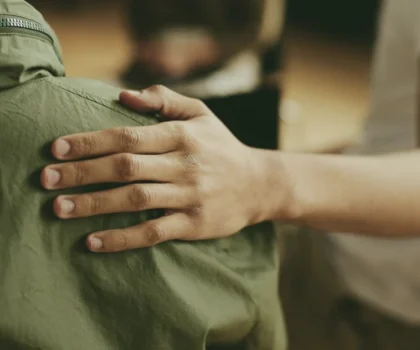
Substance abuse group activities focus on creating an environment where members feel safe sharing their thoughts and experiences. Substance abuse group activities can range from collaborative exercises that require teamwork to sharing personal anecdotes or engaging in empathy-building exercises. By fostering a sense of belonging and camaraderie, substance abuse group activities strengthen members’ bonds and encourage forming a cohesive, supportive community. Cognitive behavioral group therapy aims to create a collaborative environment that fosters emotional and mental well-being. Group therapy can be used to explore and process a member’s triumphs, challenges, and relapses. Talking about these experiences in a group setting will not only benefit the client experiencing them, but also other members of the group who can learn from their experience.
Coping Skills Toolbox Building: Empowering Resilience

Engagement in peer support networks is crucial for individuals in recovery, as these networks promote accountability and shared experiences. By connecting with others who have faced similar challenges, individuals can gain encouragement and motivation to continue their recovery journey. Role-playing exercises are a key component of relapse prevention groups, allowing members to simulate peer pressure situations and practice their responses. This hands-on approach helps individuals build confidence in their ability to handle real-life triggers and stressors, reducing the risk of relapse.
Solution-Focused Brief Therapy Worksheets Bundle
- This activity can bring clarity, reinforce personal resolve, and foster understanding with those who matter most.
- Try a few of these and see how they resonate with your group then figure out how you can proceed.
- Learn about addiction treatment facilities that can meet your or your loved one’s needs by visiting AddicionResource.net today, or call us for assistance.
- We do not receive any commission or fee that is dependent upon which treatment provider a caller chooses.
This activity encourages members to celebrate even minor milestones, helping them recognize progress and reinforcing a sense of accomplishment. Creating stress balls offers a hands-on way for members to make their own calming tools. Filling balloons with sand or rice, members can carry these stress balls as reminders of their ability to manage anxiety and stress without relying on substances. This work was supported by the National Institute on Drug Abuse (R34DA034898) and the New York Harbor Healthcare System. The authors of this article searched electronic databases of relevant peer-reviewed research literature including PubMed and MedLINE. Our helpline is available 24 hours a day, 7 days a week at no cost to you and with no obligation for you to enter into treatment.
Mindfulness Exercises: Cultivating Present-Moment Awareness

It’s amazing how thinking on your feet in a supportive environment can boost confidence in real-world interactions. Group goal-setting helps people in recovery set and pursue meaningful objectives together. By breaking down larger goals into manageable steps according to participants’ capabilities, the group gains a sense substance abuse group activities of accomplishment and enhanced self-esteem.
Each person curates a collection of techniques and resources that work best for them. It’s empowering to know you’ve got a arsenal of strategies at your fingertips when challenges arise. Mindfulness scavenger hunts encourage participants to engage fully with their surroundings, seeking out specific sensory experiences. It’s a playful way to practice being present in the moment – a crucial skill in managing cravings and stress. Learn about addiction treatment facilities that can meet your or your loved one’s needs by visiting AddicionResource.net today, or call us for assistance.
- With knowledge, individuals can better comprehend the need for treatment and strategies to overcome addiction.
- Moreover, art therapy fosters personal growth by promoting self-acceptance and self-discovery.
- These discussions empower individuals to face life’s challenges without turning to substances for solace.
Topics Covered in Group Therapy for Substance Abuse
People opting for group therapy and support groups are often looking for peers to offer guidance and support in their recovery journey. Lock and key activities can be fun to break the ice and allow peers to connect and share their experiences. Group sessions provide group members with an opportunity to practice life skills including communication and establishing boundaries. Effective group leaders can help create an environment =https://ecosoberhouse.com/ where members can challenge each other in a productive manner while practicing these life skills. The program here at Two Dreams focuses on the improvement of one’s life through the achievement of mental peace, physical well-being, and personal productivity.

How Does Group Therapy Help with Substance Abuse?
Art therapy gives members an outlet to express emotions and experiences creatively. By using drawing, painting, or collage-making, members can explore feelings they may find hard to verbalize, allowing for a therapeutic release and greater self-awareness. SAMHSA’s programs and campaigns offer information, training, and technical assistance to improve the quality and delivery of behavioral health services across the nation. If there was a discrepancy, further information was gathered to make an accurate determination of how to proceed.
Breaking the Ice: Trust-Building Exercises That Melt Barriers
Group therapy is a dynamic and supportive environment where multiple individuals are treated simultaneously for substance use disorders. Unlike individual therapy, it leverages the power of shared experiences to foster a sense of community and mutual support in a group setting. Group therapy is a cornerstone of substance abuse treatment for several compelling reasons. It provides a supportive and empathetic environment where individuals can share their experiences, challenges, and triumphs with others on a similar path. Through open discussions and brainstorming sessions, participants pool Substance abuse their collective wisdom to create a personalized toolbox of coping mechanisms.
How do coping skills workshops help in substance abuse recovery?
- Lead a guided meditation session to help members focus on the present moment, reduce anxiety, and develop a regular mindfulness practice that supports recovery.
- Have everyone write out a list of self-affirmation, then select one or more of these to share with the group.
- Through these activities, you’re not just learning to cope; you’re forging connections, building skills, and nurturing the foundation for a life of lasting recovery.
- After playing with them, transition into a discussion about the fallibility of our senses and point of view.
- This activity helps members explore qualities, interests, and values that define them beyond addiction, encouraging them to embrace a new, healthy identity.
- To find another treatment program, browse the top-rated addiction treatment facilities in each state by visiting our homepage, or by viewing the SAMHSA Treatment Services Locator.
Setting achievable goals and celebrating successes, no matter how small, can be incredibly motivating. Topics include active listening, assertiveness, conflict resolution, and rebuilding trust. Improved communication can help individuals mend relationships damaged by addiction.
Engaging in art, music, or writing within a supportive group setting encourages participants to explore their thoughts and emotions. In settings like Alcoholics Anonymous and other self-help support groups, participants find social support and a safe space to openly discuss their challenges. Group mindfulness practices and relaxation techniques, such as yoga or tai chi, significantly benefit people in all stages of recovery, offering a form of self-care. To find another treatment program, browse the top-rated addiction treatment facilities in each state by visiting our homepage, or by viewing the SAMHSA Treatment Services Locator. The helpline at AddictionResource.net is available 24/7 to discuss the treatment needs of yourself or a loved one.
